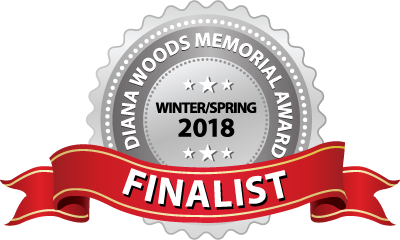To Mold a Star without Burning (or, Jean-Michel Basquiat: An Art Critique)
A. Description
The Work’s medium was oxygen, carbon, hydrogen, nitrogen, calcium, and phosphorus, birthed one December day in 1960, Brooklyn. Boy child from brush strokes of Puerto Rican mother and Haitian father. Face framing wide-set brown eyes and wide refined nose. Our eyes are drawn to the thin line that divided his naked torso in two—a bisect from a childhood car accident that kept him bedridden and flipping through Gray’s Anatomy for weeks. We could dedicate a whole page to The Work’s hair, which was sometimes untrimmed garden with thick clusters of kink. Other times it was a simple landing strip of wool on scalp. By adulthood The Work was distinguished by an average height and flowing lines. His walk more of an ooze, really: a median for a being in a hurry and taking his time all at once. He painted sans shirt or nude. His smile was all play, all bold teeth framed by wide lips. Watching Jean-Michel grin was watching a magnet at work. No wonder The Work was born artist, weaned when his mother brought him to The Met again and again to absorb post-impressionism like a prayer of echoing stipples.
B. Analysis
Take note of the repetition; a common motif in The Work’s life was black excellence and white indifference—or exploitation.
Throughout most of his life Jean-Michel was unstable. His Met-loving mother became institutionalized. His accountant father demanded pure tones and definition… the expectation was all school and obedience, no deviation from the classics. Going from Brooklyn to Puerto Rico back to Brooklyn left The Work unevenly seeking some form of stability, a sense of permanence.
The Work’s magnet-grin made him repellant. A rebel of law and order (namely his father’s and the public school system’s) that christened him problem child. Meanwhile the city dragged him across one landscape to another, from sleeping in Washington Square Park at seventeen to writing cryptic messages on subways in the early morning hours, all the while taking the drugs that allowed his brain to rattle. His favorite would become heroin and the way it made lines converge and blur.
Consistent drugs rendered Jean-Michel’s interior chaotic. He learned to channel the chaos through broad strokes and colossal ambition—his, not his makers’. That ambition was channeled onto eighty-four-inch canvases. Some subjects of choice were griots, black athletes, the body, and the self. Under double-weight of expectation and constraint, elasticity may’ve been what The Work craved all along, like in his painting Flexible. The painting is a shadow of near-black acrylic on near-white wood. A dark figure’s eyes, nose, and head are outlined in yellow. Jagged circles and squares are teeth. The lungs drawn in white on the torso. The dark figure’s arms loop together like a speech bubble. Kindergarten colors with an esoteric message crowned Jean-Michel the art world’s radiant child, their primitive painter. Even better he was black; primitivity from the source.
The Work’s most distinctive feature, talent aside, was his ochre surface that dubbed his success dangerous. That made hailing a cab impossible, multimillionaire status be damned. That branded The Work isolatingly individual, a Twombly in a room of Rembrandts. That curdled the eighties art world constants of white wine, white walls, and white people. That classified Jean-Michel as “Black artist” rather than “artist.” Take note of the repetition; a common motif in The Work’s life was black excellence and white indifference—or exploitation.
But what does it all mean?
C. Interpretation
If you break apart the name, “Jean” comes from the Hebrew root for “God is gracious.” “Michel” translates to “Who is like God?” A rhetorical question, since no one is like God. Even if they leave a Godlike furor in their wake: pained lovers, painted fridge doors, befuddled art dealers, powder trails. If Jean-Michel was like God he was strictly Old Testament. The ones who felt his grace most were friends and women who could stand the clutter. Some came as dark-eyed runaways that couldn’t tell him no. Others came as Area blondes, though none were as free-form as he was. They were awarded with garish love (gourmet desserts, cheeky portraits, playfulness) and grayed selfishness (infidelity, indifference, STD-turned-sterility).
If Jean-Michel was like God he was strictly Old Testament. The ones who felt his grace most were friends and women who could stand the clutter.
It’s hard to determine what Jean-Michel was meant to convey. If we asked the makers—Matilde and Gerard—what their intentions were in sculpting him, their answers might have varied. Perhaps they envisioned neoclassical rather than neoexpressionist. In any case, the makers were unwitting masters. Their Work sold canvases that disappeared in the blink of an eye for millions. Some say his purpose was to do just that, shake up 1980s art and then vanish. Some say his purpose was to color in the blindingly pale, where the only African art in museums came from Picasso. Maybe all that matters is that the rest of us felt Jean-Michel’s grace, too, jarring and certain on his canvases. Maybe The Work taught us that grace reveals itself in crossed-out words and three-point crowns, and that mercy is not as neat as we like to think.
D. Judgment
Now the lingering question: Was he worthwhile? We must outline the criteria for what makes a work of art “worthwhile,” being: 1) beauty, 2) uniqueness, and 3) fulfilled purpose. There’s little doubt about The Work’s sly symmetry, bold shading, and pure form. His glaze was breathtaking before his decay. There’s even less doubt of his etchings without boundaries, the likes of which the world had never seen, nor will ever see again. Heroin shortened The Work’s duration at twenty-seven years in August 1989, Brooklyn. Jean-Michel’s funeral was attended by comrades and art dealers alike; the latter’s eyes glossed over The Work’s corpse while calculating death revenues. Now his pictures garnish t-shirts, sneakers, and backpacks. Canonization renders Jean-Michel costume fodder for hip young black men and those who want to be them.
We’ll say The Work was what he was: black, brazen, and beaming. We’ll say Jean-Michel was the harshest brand of divinity.
The third criteria, however, isn’t as easy to discern; Gerard and Matilde left no artist’s statement. They didn’t post a placard saying, “In this male flesh we recognize our own blood and tempest. Through him we explore the concepts of love and longing. We merge the prodigal with the inventive. Touch him. Love him and expect to be loved in return” next to his mounted figure. They didn’t anticipate bringing a spectacle into the world.
At best The Work was explicitly abstract. As one of many lovers noted, “[He] was attracted to people for all different reasons. They could be boys, girls, thin, fat, pretty, ugly… [He] was attracted to intelligence more than anything and to pain.” At worst The Work was warped. In his most aggressive sheen he obscured all obligations, hurting the ones who loved him in fits of puerility. Beloveds didn’t want to risk hearts, dealers didn’t want to risk wallets. But how do you say no to gloss? How do you subdue a magnet’s pull?
You don’t. You appreciate the strength of his hands and the resolve of his paintbrush. You marvel; in The Work’s eyes, every canvas mistake was a chance at invention. We won’t say The Work was good, good is too noncommittal. We’ll say The Work was what he was: black, brazen, and beaming. We’ll say Jean-Michel was the harshest brand of divinity.
And we weren’t ready for his corona.
Works Consulted
Basquiat, Jean-Michel. Flexible. Digital image. Pace Prints. Pace Editions, 2 June 2016.
Clement, Jennifer. Widow Basquiat: A Love Story. Broadway Books, 2014.
Davis, Tamra, director. Jean-Michel Basquiat: The Radiant Child. Arthouse Films, 2011.
Haden-Guest, Anthony. “Burning Out.” Vanity Fair, Nov. 1988.
Hoban, Phoebe. Basquiat: A Quick Killing in Art. New Edition ed., Quartet Books, 2015.


 Ola Faleti lives, works, and writes in Chicago, Illinois. When she’s not writing grants for a creative writing nonprofit, she is eating her weight in peanut butter cups, probably. Her work has appeared in Harpoon Review, The James Franco Review, Rust Belt Chicago: An Anthology, and elsewhere. She is honored to be a finalist for the Diana Woods Memorial Award.
Ola Faleti lives, works, and writes in Chicago, Illinois. When she’s not writing grants for a creative writing nonprofit, she is eating her weight in peanut butter cups, probably. Her work has appeared in Harpoon Review, The James Franco Review, Rust Belt Chicago: An Anthology, and elsewhere. She is honored to be a finalist for the Diana Woods Memorial Award.


